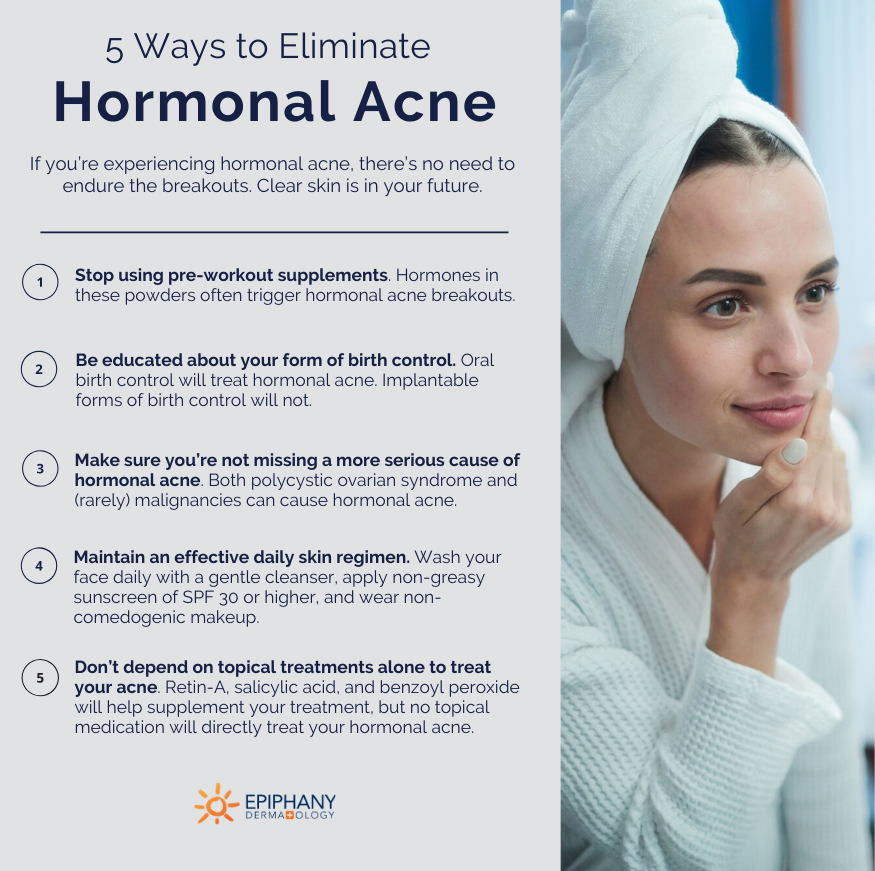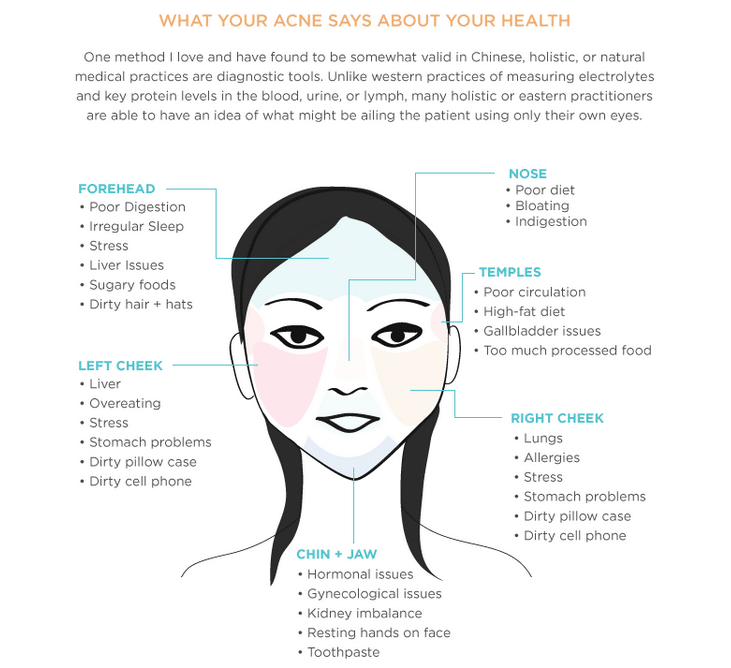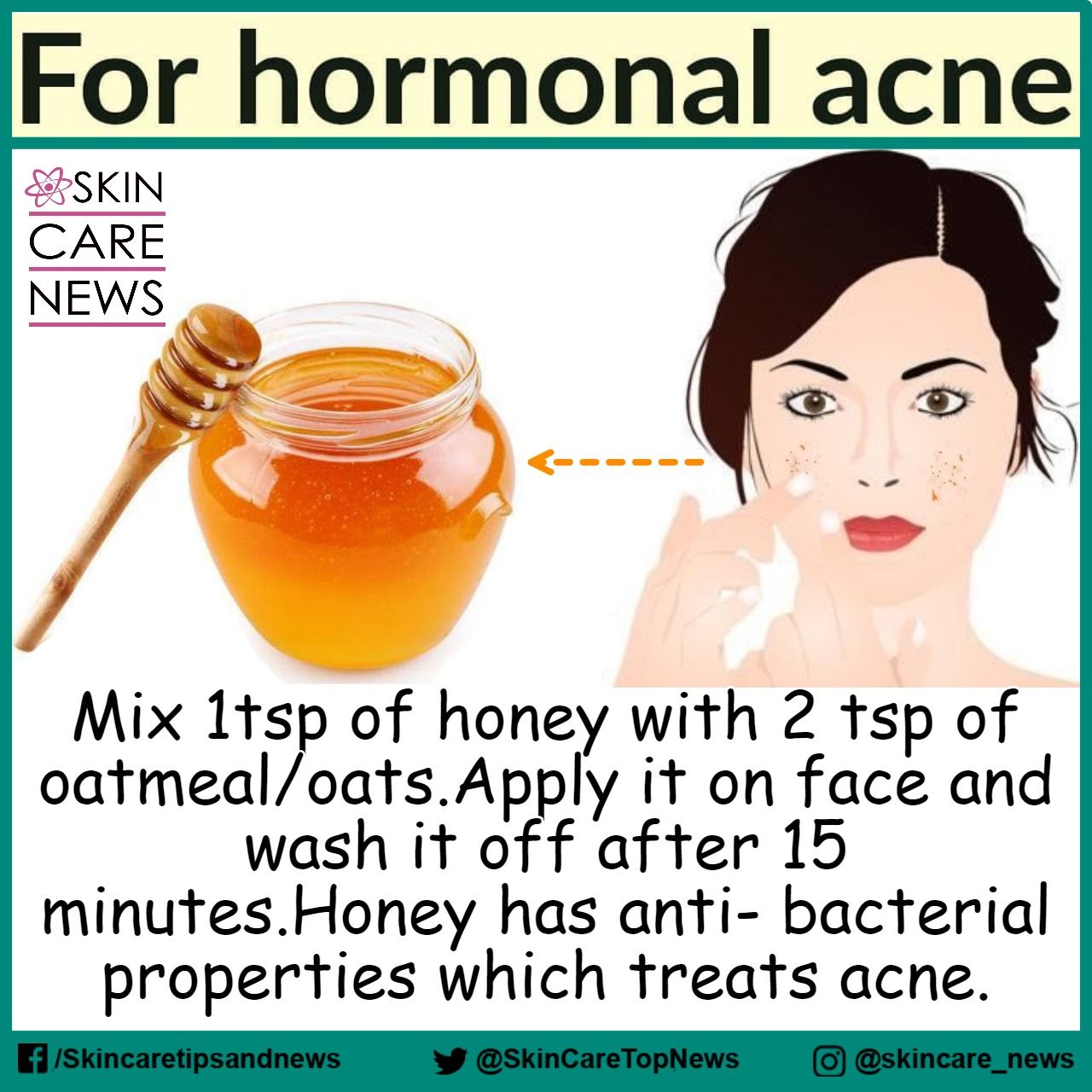How To Treat Hormonal Acne Naturally Top 3 Ingenious Ways
Hi! Im Jessica Gremley, Founder and CEO of Natural Acne Clinic. This blog post is a personal one for me as it took 15 years of education and research to figure out how to clear my own hormonal acne.
I launched NAC out of my passion to share the truth about acne and how hormonal acne can be treated naturally. With each client we serve, my hope is to debunk misleading myths and incorrect information about how hormonal acne can be cleared once and for all because I was able to do it for myself.
When we consume the wrong information, we often think the natural approach will not be as effective as a more harsh treatment like Accutane. Not true!
Harsh topicals, birth control pills, and pharmaceuticals can destroy the body from the inside out and are not the only option. Honestly, these are pretty old-school approaches that dont consider the whole body as we do at NAC.
The American Academy of Dermatology has found the onset of adult acne is becoming increasingly common in women in their 30s, 40s and even 50s. Studies show that up to 50% of women in their 20s and 25% of women in their 40s struggle with acne triggered by hormonal changes in the body.
Pregnancy, diet, stress, and menopause can cause hormonal imbalances triggering acne on the jawline, chin or lower cheek. It can often appear red and inflamed causing some amount of pain.
Consider Seed Cycling For Acne
Seed cycling is a food-based approach to hormone balance that is synchronized with your menstrual cycle.
With seed cycling you eat a specific set of seeds during each phase of your cycle. It looks like this:
- Follicular phase: flaxseeds and pumpkin seeds.
- Luteal phase: sesame seeds and sunflower seeds.
Each set of seeds provides nutrients that support how our hormones naturally fluctuate throughout the month.
Now, even though theres not a lot of scientific research around seed cycling, its a method that is often taught to naturopathic doctors.
And there is anecdotal evidence from women on social media and other blogs who have successfully used seed cycling to improve their hormones and skin.
If you need help with this protocol, then be sure to read this beginners guide to seed cycling for hormone balance. Its got all the details you need to get started.
What Causes Acne Papules
Acne papules have many causes:
- Your oil glands produce too much oil.
- An increased presence of bacteria on your skin.
- An increased presence of androgens, which are a group of sex hormones. They help start puberty and play a role in reproductive health and body development. All people have androgens, but people assigned male at birth make more of them. Testosterone is the most common androgen.
- Some medications, including corticosteroids and anabolic steroids.
Recommended Reading: Where To Buy Testosterone Injections
What Is Hormonal Acne Anyway
First, its important to understand the difference between hormonal acne and good old-fashioned pimples. Hormonal acne is intrinsically linked to your hormones, resulting in cyclical breakouts that usually coincide with a persons menstrual cycle, Joshua Zeichner, M.D.2, board-certified dermatologist and director of cosmetic and clinical research at the Icahn School of Medicine at Mount Sinai in New York, tells SELF. It can also match up with other hormonal shifts in your life, meaning your menopausal acne or postpartum pimples could be hormonal.
One important thing to note: Hormonal acne is technically not a medical term, board-certified dermatologist Ife J. Rodney, M.D.3, founding director of Eternal Dermatology + Aesthetics and professor of dermatology at Howard University and George Washington University, tells SELF. However, when a person tends to get very specific types of breakouts around the time of their period or when their body is experiencing vast hormonal shifts for other reasons , dermatologists generally describe it as hormonal acne.
Start Your Health Journey Today

FUNCTIONAL MEDICINE CONSULTATIONS FOR PEOPLE AROUND THE WORLD
The information on this website has not been evaluated by the Food & Drug Administration or any other medical body. We do not aim to diagnose, treat, cure or prevent any illness or disease. Information is shared for educational purposes only. You must consult your doctor before acting on any content on this website, especially if you are pregnant, nursing, taking medication, or have a medical condition.
Our articles may include products that have been independently chosen and recommended by Dr. Will Cole and our editors. If you purchase something mentioned in this article, we may earn a small commission.
BY DR. WILL COLE
Evidence-based reviewed article
Dr. Will Cole, IFMCP, DNM, DC, leading functional medicine expert, consults people around the world via webcam and locally in Pittsburgh. He received his doctorate from Southern California University of Health Sciences and post doctorate education and training in functional medicine and clinical nutrition. He specializes in clinically researching underlying factors of chronic disease and customizing a functional medicine approach for thyroid issues, autoimmune conditions, hormonal imbalances, digestive disorders, and brain problems. Dr. Cole was named one of the top 50 functional medicine and integrative doctors in the nation and is the best selling author of Ketotarian and The Inflammation Spectrum.
You May Like: Women’s Menstrual Cycle Hormones
Dr Fentons Top Tip: Reduce Stress
Stress triggers the release of a variety of hormones that can trigger an inflammatory response in the body. Inflammation is a major cause of acne. It is what leads to those large and deep red cystic pimples.
Anything you can do to reduce inflammation will be helpful for your acne. Get plenty of sleep, exercise, and practice relaxation techniques.
Should I Squeeze Or Pop My Pimples
Popping pimples can be very tempting and satisfying. However, its best if you dont squeeze or pop your pimples. Squeezing pimples can cause several problems, including:
- Introducing bacteria into the pimple opening. Bacteria can cause an infection.
- Irritating your skin. Your skin is sensitive, and your nails are much stronger than your skin. When you use your nails to apply a lot of pressure to your skin to pop a pimple, you can cause inflammation. Pimple-popping tools can also damage your skin. Only a healthcare provider, medical aesthetician or dermatologist should use these tools.
- Scarring your skin. You can draw blood and seriously damage your skin if you apply too much pressure. If pimples are deep in your skin, you may not even extract them.
Read Also: Metabolic Renewal Hormone Type 4
Causes Of Hormonal Acne
There are two main indicators: Your breakouts happen along the lower third of your face, and they get worse before your period when there is an excess build-up of testosterone, according to Joshua Zeichner, MD, the director of cosmetic and clinical research in dermatology and assistant professor of dermatology at Mount Sinai Medical Center in New York City.
Besides Aunt Flow, there are a few other hormonal acne causes. Pregnancy and the fluctuating hormones that come along with it, for one. Also, the decline in reproductive hormones can cause hormonal acne due to your body adjusting to fluctuating levels. Polycystic ovary syndrome is another culprit. It can occur in women at a reproductive age and causes a fluctuation in hormones that can increase the length of your menstrual cycle, cause obesity, and result in breakouts.
How To Treat Hormonal Acne
“Preventing hormonal acne might seem like a tall orderit is caused by your hormones, after all but there are a few things you can do, says Love. It requires some lifestyle changes. These breakouts are coming from an imbalance of hormones in the body, so you need to get to the root of the cause to determine the right hormonal acne treatment. Ahead, dermatologists share their best tips for how to help treat hormonal acne.
We recommend this at-home hormone level test to monitor any hormone imbalances.
“When it comes to hormonal acne, the body inhabits a strong sensitivity to androgens, more specifically testosterone,” says SkinOwl founder Annie Tevelin. Studies estimate that approximately 50 percent women aged 20 to 29 experience hormonal acne. To make sure hormones are the root cause, Tevelin suggests you “run an in-depth hormone panel blood test and test it throughout the month to make sure your hormone levels are stable.” Because the hormonal cascade fluctuates depending on where you are in your menstrual cycle, she suggests testing several times throughout the month.
Recommended Reading: How To Know You Have Hormonal Imbalance
The Best Ways To Treat And Prevent Hormonal Acne
There are several different treatment options that can help you get rid of hormonal acne, but you should start by talking to a dermatologist about how best to tackle your breakouts, especially if you’re experiencing cystic, inflammatory acne. Your derm can help come up with a plan that works specifically for your needs. Note that while over-the-counter acne products can be especially effective if you’re only dealing with mild breakouts, when it comes to cystic acne , it’s likely you’ll need to incorporate prescription-strength acne products and oral medications into your routine, in addition to certain lifestyle changes. But whatever course you take, note that consistency and patience is key.
Here are some additional potential solutions your dermatologist may discuss with you:
The Purifying Face Mask
Ideal for those who suffer from cystic acne or blind pimples, this 100% vegan face mask is infused with bamboo charcoal, green tea leaves and organic tea tree oil to draw out impurities and refine the look of pores. It also smells like a day at the spa, so thats always a win!
Try: The Body Shop Himalayan Charcoal Purifying Glow Mask, $35 at The Body Shop
Recommended Reading: How To Clear Up Hormonal Acne Naturally
What Cant I Eat Or Drink If I Have Pimples
Healthcare providers and researchers once believed that certain foods might contribute to the development of pimples, especially skim milk, whey protein and diets high in sugar . However, that may not be true. The research between diet and pimples isnt clear.
But certain vitamins promote healthy skin, which may help prevent pimples. These include:
- Vitamin A: Good sources of vitamin A include leafy green vegetables, orange and yellow vegetables, tomatoes, fruits, fish and liver.
- Vitamin D: Good sources of vitamin D include fatty fish and vitamin-fortified foods, including dairy and nondairy milks, breakfast cereals and orange juice.
- Vitamin E: Good sources of vitamin E include nuts, seeds, leafy green vegetables and vegetable oils.
What Are Treatment Options For Hormonal Acne

Over-the-counter cleansers
Over-the-counter skin cleansers and face washes may be able to help with mild to moderate acne. Common ingredients to look for include:
- Salicylic acid: Works by targeting the top layer of skin and dissolving dead skin cells, which helps prevent clogged pores.
- Benzoyl peroxide: Helps remove bacteria from the surface of the skin, making it less likely for bacteria to enter clogged pores and cause inflammation.
- Antibiotics: May include clindamycin and erythromycin, which are typically combined with benzoyl peroxide to help keep bacteria on the skin’s surface under control.
Prescription creams
Your dermatologist may recommend the following to bring hormonal acne under control:
You May Like: Does Non Hormonal Iud Cause Acne
Making Healthy Diet And Lifestyle Choices
A healthy lifestyle goes a long way in balancing hormones and improving the skin. Avoiding excess stress, which increases cortisol levels and can cause hormonal imbalances, and maintaining balance blood sugar levels by avoiding excess sugar consumption can all help combat hormonal acne.
Drinking plenty of water and eating a mostly plant-based diet filled with leafy greens, cruciferous vegetables, and proteins will all promote skin health by reducing the reoccurrence of adult female acne. Additionally, hormonal treatments like BHRT can treat hormone deficiencies that may be causing hormonal acne so that when combined with the right skin care treatment plan, you can achieve a clear and healthy acne-free complexion.
See If A Vitamin Or Supplement Might Help
If you’re not comfortable trying a prescription medication, there are some vitamins and supplements that could potentially help treat hormonal acne. First up: Nicotinamide, a form of vitamin B3 that may help acne due to its anti-inflammatory effects. In studies, both topical and oral vitamin B3 supplements have been shown to improve acne, according to Dr. Garshick. It’s also possible that zinc can help hormonal acne. Zinc supplements have been shown to reduce breakouts, says Dr. Zeichner, though some studies show that treating acne topically with zinc might be the more effective route.
All that said, it’s important to always check with your doctor first before taking any new supplements, especially since taking too much of any supplement has the potential to be harmful. It is also best to only start one new supplement at a time to be able to identify what is helping or if any side effects occur, says Dr. Garshick.
Don’t Miss: Side Effects Of Hormonal Birth Control
Traditional Treatments For Hormonal Acne
Unless your hormonal acne is mild, over-the-counter products usually arent successful.
This is because hormonal acne typically takes the form of cystic bumps. These bumps form deep under the skin, out of reach of most topical medications.
Oral medications can work from the inside out to balance your hormones and clear up the skin. Common options include oral contraceptives and anti-androgen drugs.
How To Treat It
Tempting though it may be, do not squeeze or attempt to pop your pimples! If you do, you increase the risk of scarring which is unlikely to ever heal completely.
If your acne is persistent and causing you major stress, your doctor might be quick to recommend hormonal birth control. While this can potentially be effective, its important to understand the long-term side effects of hormonal birth control. Instead, we would recommend trying a natural approach first both to treat and prevent hormonal acne.
Read Also: How To Lose Hormonal Weight
Is Menopausal Acne A Form Of Hormonal Acne
Many women begin to experience menopause in their 40s and 50s. This causes a natural decline in your reproductive hormones, resulting in an end to menstruation.
Some women experience acne during menopause. This is likely due to a drop in estrogen levels or an increase in androgen hormones like testosterone.
You may still experience menopausal acne even if youre using hormone replacement therapies to ease your menopause symptoms. This is because some HRTs use an influx of the hormone progestin to replace the estrogen and progesterone your body loses. Introducing this hormone to your system can cause your skin to break out.
In most cases, prescription medication can clear up menopausal acne. Some women may find success using natural treatment methods. Talk to your doctor about which options may be right for you.
What Is Hormonal Acne Hormonal Acne Treatment
Hormonal acne is acne caused by genetic and hormonal factors that cause breakouts well past puberty and the teenage years. Hormonal acne occurs more often in women and is typically located on the lower part of the face. Breakouts happen along the jawline, the chin, and the perioral region . The breakouts consist of inflammatory lesions, cysts, whiteheads, and blackheads.
Genetics
When it comes to adult acne, genes have proven to play a role in its existence. Genetics influence the number, size, and activity of the sebaceous glands the sebaceous glands are the oil glands in the skin that create sebum , can get clogged, and cause breakouts.
Hormones
The two hormones that need to work harmoniously together when it comes to clear skin are androgens and estrogen hormones. Androgens stimulate sebaceous gland growth and increase sebum production. Estrogens work in the opposite way and slow sebum production. So when androgen levels are abnormally high, breakouts occur often. Similarly, when estrogen levels are lower especially during the premenstrual period in women, acne is more likely to occur.
The most common reasons for hormonal acne breakouts are:
There are some natural ways to treat hormonal acne.
- Dietary Changes
- Limiting dairy, artificial sugars, alcohol, red meat, and overly processed grains can help to lower inflammation and reduce breakouts.
Recommended Reading: What Is Human Growth Hormone
Does Progesterone Cause Acne
Yes, fluctuation in the levels of sex hormones during your menstrual cycle may also contribute to acne before your period.
Progesterone levels rise during the middle of the cycle. This may stimulate the sebaceous glands in the skin. However, the role of progesterone in sebum production is uncertain.
Increased progesterone may also raise your body temperature and worsen sweating, leading to clogged pores. This buildup of sebum beneath the skins surface along with dirt, dead skin cells, and bacteria results in breakouts of acne before and during your period.
What Does Hormonal Acne Look Like

“Hormonal acne is almost always cystic and inflammatory in nature, says Love. It presents with painful red papules, pustules, and deep cysts on the lower face, and it can create long-term scarring . At its mildest form, hormonal acne presents with a breakout or two near menstruation, but for many, it can persist all month long.
She explains that hormonal acne most commonly occurs on the lower face and body , but can also present between the brows.
Also Check: How Long Can You Take Hormone Replacement Therapy
What Are The Complications Of Cystic Acne
Opening up acne cysts by popping or picking them increases the risk of scarring and bacterial skin infections like cellulitis.
Some people develop pigment changes spots at the site of the acne cyst after the skin clears up. These spots may be pink, purple, red, black or brown. They eventually fade away, but it may take more than a year.